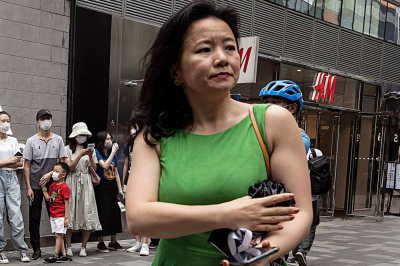The Washington Post-Australian journalist detained in China for three years arrives home
October 11, 2023 2 min 260 words
这篇报道揭示了中国与澳大利亚关系的复杂性,以及媒体在此过程中的关键角色。澳大利亚记者程梨在中国被拘留三年后终于回国,这是一个值得庆祝的时刻。她的拘留发生在中澳关系异常动荡的时期,与保守政府在位时有关,而现任中左派领导层正试图修复与中国这一最大贸易伙伴的关系。 澳大利亚总理安东尼·阿尔班斯在接机澳洲记者程梨的时候表示,她的回国标志着她的家庭度过了非常艰难的几年。这也标志着澳大利亚政府长时间以来的争取的胜利,将受到广大澳大利亚人的热烈欢迎。 程梨是中国中央电视台英语频道CGTN的知名主持人,专门报道商业和政治领域的新闻。她在2020年被拘留,六个月后正式被指控涉嫌向海外提供国家机密。 这一事件背后,也有澳大利亚政府在国际舞台上发声的因素。澳大利亚曾要求联合国调查中国新疆地区拘留中心的性虐待指控,这激怒了北京。在2020年,澳大利亚在时任总理斯科特·莫里森的领导下,呼吁国际调查冠状病毒起源,引发了中国对澳大利亚大量谷物、牛肉、葡萄酒等商品征收高额关税的报复措施。 这一事件凸显了国际政治和媒体的紧密关系,以及言论自由和新闻报道的重要性。程梨的回国不仅代表了一个人的自由,也反映了国家间关系和全球新闻报道的复杂性。
2023-10-11T05:34:00.339Z
SYDNEY — Australian journalist Cheng Lei has returned home after three years of detention in China, the Australian government announced Wednesday.
Cheng was detained during an extraordinarily turbulent period in China-Australia relations under a conservative government, and has now been released as the current center-left leadership tries to repair ties with its biggest trading partner.
Australian Prime Minister Anthony Albanese said Wednesday that Cheng was met at the airport in Melbourne by Foreign Minister Penny Wong.
“Her return brings an end to a very difficult few years for her family,” Albanese told reporters. “The government has been seeking this for a long period of time and her return will be warmly welcomed not just by her family and friends but by all Australians.”
Cheng was a high-profile anchor covering business and politics for CGTN, the English-language state broadcaster owned by China Central Television, which presents China’s case favorably.
She was detained in August 2020 and was formally arrested six months later, charged with supplying state secrets overseas.
Cheng’s arrest came a day after Australia called for a United Nations investigation into allegations of widespread sexual abuse in Chinese detention centers in the Xinjiang region, angering Beijing.
In 2020, Australia under then-prime minister Scott Morrison led calls for an international inquiry into the origins of the coronavirus, drawing Chinese retaliation in the form of steep tariffs on imports of Australian barley, beef, wine and other goods.

